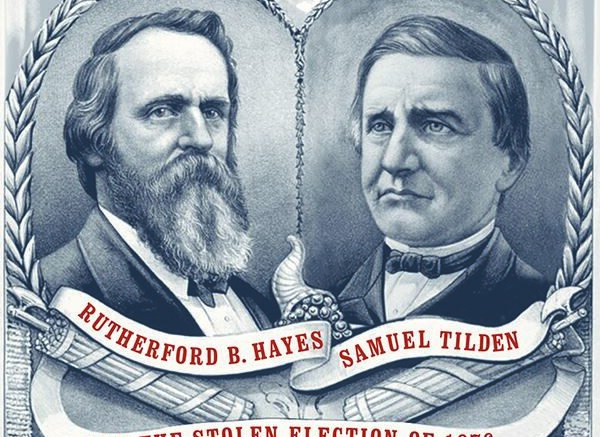During two campaign stops in July the former president told a group of Christians that if they voted for him this one time they would not have to vote again in the future because it would be “fixed in four years”. That, along with an additional statement that he did no need anymore votes because he already had enough votes to win the 2024 presidential election, has prompted many to wonder if the upcoming presidential election might not be a repeat of the Tilden-Hayes compromise of 1876, which allowed the candidate who lost the popular vote and was short of the necessary votes in the initial counting of the electoral college to emerge as the eventual winner of the presidential election.
The presidential election of 1876 remains one of the most contentious in American history. Democrat Samuel J. Tilden, Governor of New York, won the popular vote by a margin of approximately 250,000 votes, amassing 4,288,546 votes to Republican Rutherford B. Hayes’s 4,034,311. Despite this clear popular mandate, Tilden fell just one electoral vote short of the necessary 185 to secure the presidency, with an initial count of 184 to Hayes’s 165.
The controversy arose when four states—Florida, Louisiana, South Carolina, and Oregon—submitted disputed electoral returns. These states, all with Republican-controlled electoral boards, refused to certify their election results, citing allegations of fraud and intimidation. This deadlock prompted the establishment of a special Congressional commission to resolve the impasse.
Behind closed doors, a secret deal was struck between members of the Congressional committee and Southern Democrats. Known as the “Compromise of 1877,” this arrangement shifted the 20 disputed electoral votes to Hayes, effectively handing him the presidency with a final electoral count of 185 to Tilden’s 184. In return, Republicans agreed to several key concessions to the Southern Democrats.
One of the most significant outcomes of the compromise was the withdrawal of federal troops from the Southern states. These troops had been stationed in the South since the end of the Civil War to enforce Reconstruction policies and protect the rights of newly freed African Americans. Their removal marked the end of federal enforcement of Reconstruction, allowing Southern states to regain control over their own affairs.
The consequences of the Compromise of 1877 were profound and far-reaching. With federal troops no longer present to safeguard African American rights, Southern states quickly moved to disenfranchise Black voters and implement Jim Crow laws, which codified racial segregation and inequality. These laws institutionalized a system of racial discrimination that persisted well into the 20th century, fundamentally altering the social and political landscape of the United States.
The Tilden-Hayes Compromise of 1877 not only resolved a bitterly contested election but also marked the end of Reconstruction, leading to a period of regressive policies that undid many of the advancements made toward racial equality in the post-Civil War era. The repercussions of these events underscore the complex and often painful history of American race relations and the enduring struggle for civil rights.

Be the first to comment on "The Tilden-Hayes Compromise of 1876, Can it Happen Again 150 Years Later"